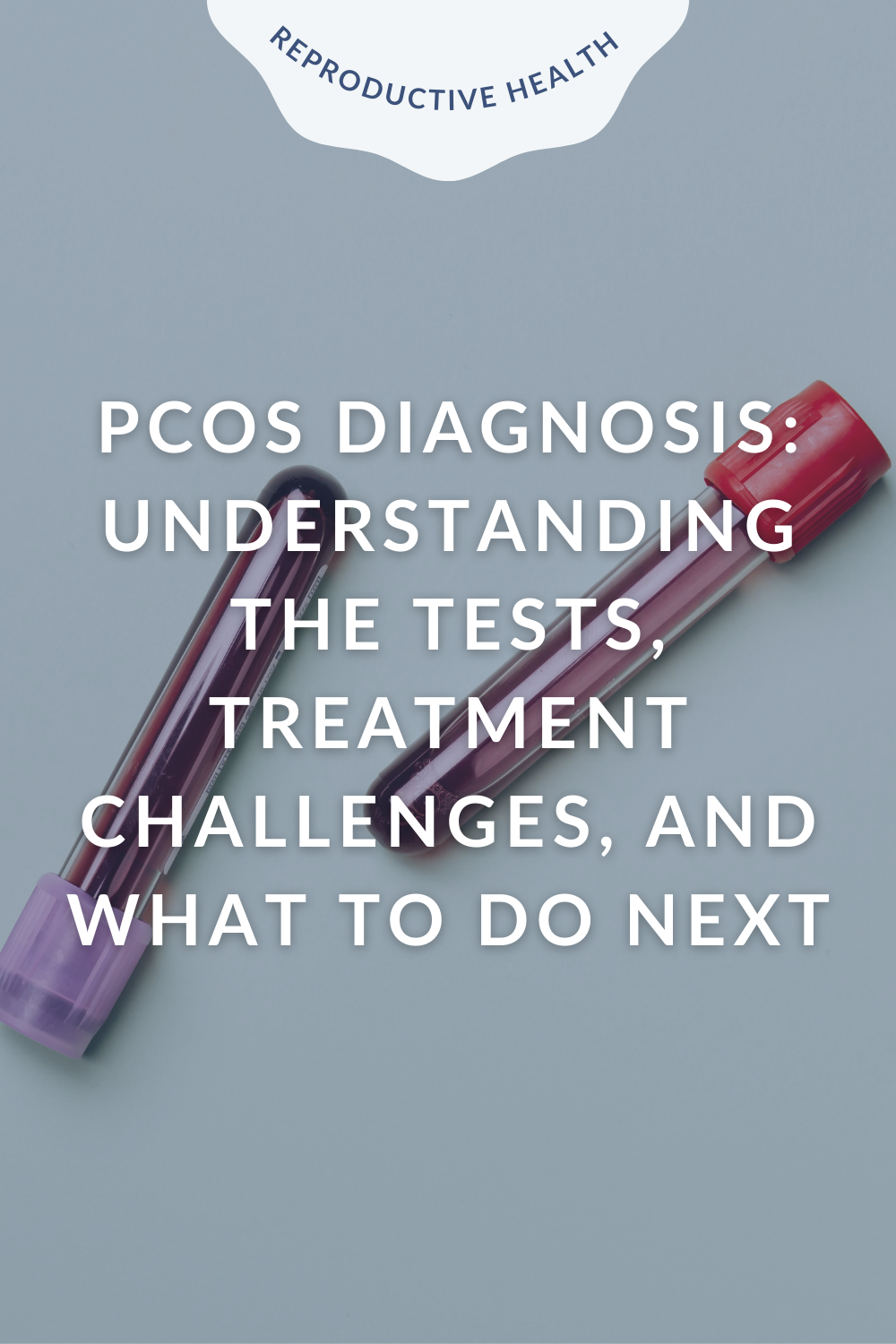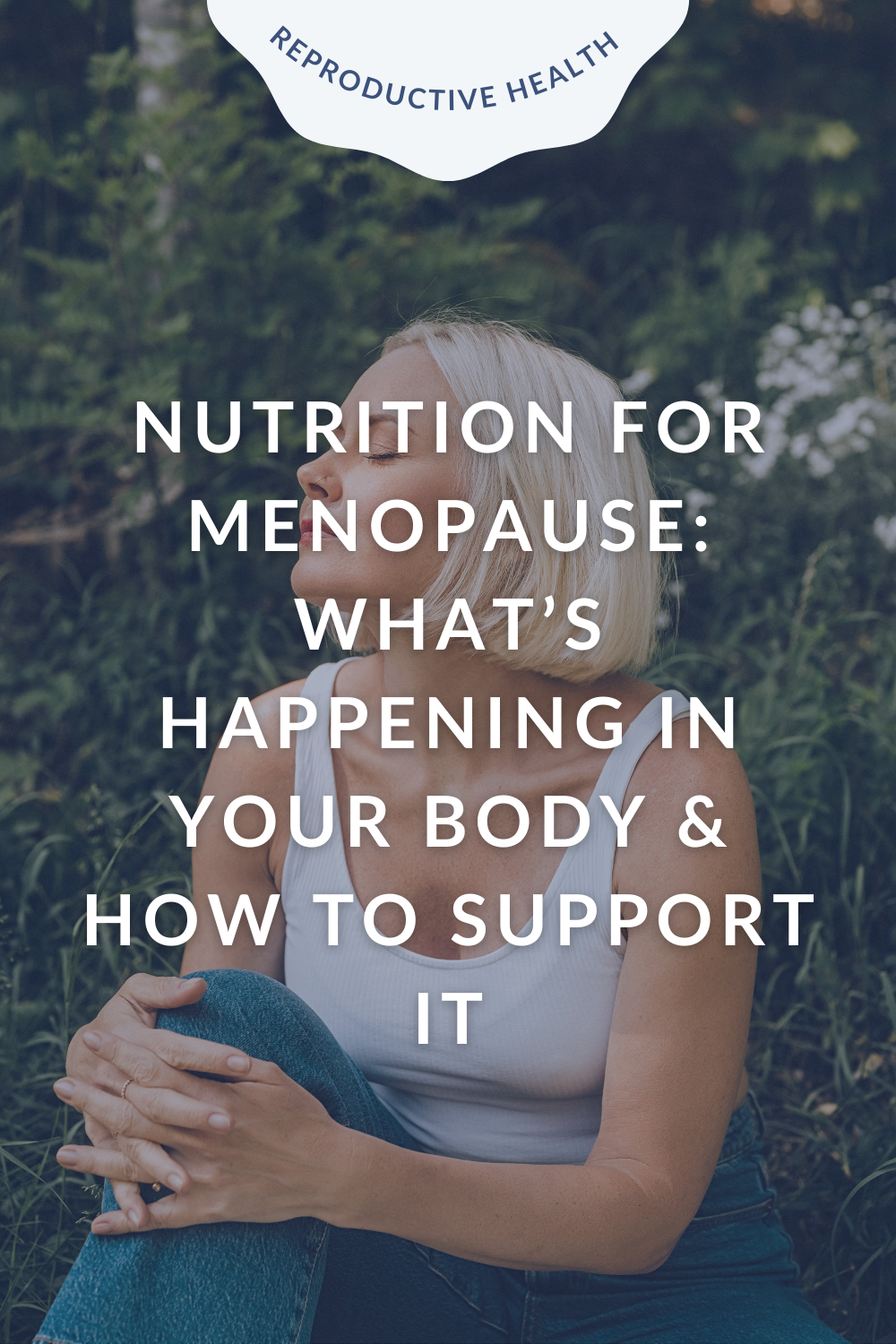PCOS Diagnosis: Understanding the Tests, Treatment Challenges, and What to Do Next
If you’ve ever been told, “Your blood work looks normal,” even while experiencing irregular cycles, acne, fatigue, or hair loss - you’re not alone. Many people with polycystic ovary syndrome (PCOS) go undiagnosed for years, despite experiencing symptoms that impact their daily lives.
PCOS affects approximately 10% of reproductive-aged people with ovaries, yet it remains one of the most misunderstood and misdiagnosed endocrine conditions.
Understanding how PCOS is diagnosed and the challenges in treatment can help you advocate for yourself and get the care you deserve. In this blog post, we’ll break down how PCOS is diagnosed, the diagnostic and treatment challenges, and what steps you can take next if you suspect you have it.
If you’ve ever been told, “Your blood work looks normal,” even while experiencing irregular cycles, acne, fatigue, or hair loss - you’re not alone. Many people with polycystic ovary syndrome (PCOS) go undiagnosed for years, despite experiencing symptoms that impact their daily lives.
PCOS affects approximately 10% of reproductive-aged people with ovaries, yet it remains one of the most misunderstood and misdiagnosed endocrine conditions.
Understanding how PCOS is diagnosed and the challenges in treatment can help you advocate for yourself and get the care you deserve. In this blog post, we’ll break down how PCOS is diagnosed, the diagnostic and treatment challenges, and what steps you can take next if you suspect you have it.
How is PCOS diagnosed?
Based on the International Evidence-based Guideline for the assessment and management of polycystic ovary syndrome 2023, PCOS is diagnosed using the Rotterdam criteria.
This requires the presence of at least two of the following three features:
Clinical or biochemical hyperandrogenism: either visible signs of high androgens (such as acne, excessive hair growth, or hair loss) or bloodwork showing elevated androgen levels.
Ovulatory dysfunction: Irregular or absent menstrual cycles.
Polycystic ovaries (excessive follicles) on ultrasound or elevated anti-Müllerian hormone (AMH) levels (a marker of ovarian reserve and follicle count).
However, other causes of these symptoms must be ruled out first (which can be tricky - see below).
It’s also important to note that for adolescents, diagnosis is slightly different. Ultrasound and AMH levels can be misleading in teenagers, not to mention the procedure itself can be very invasive! Because of that, if an adolescent is at high risk for PCOS, they may be reassessed later in life.
But if the criteria seems “clear”, why do so many people struggle to get a diagnosis, or are misdiagnosed with PCOS?
Why PCOS is often missed or misdiagnosed
PCOS is a highly variable condition - meaning that it may look and feel “one way” for you, and be different for the person next to you.
For example, Sandra might experience mostly reproductive symptoms, such as irregular cycles and infertility. Jae may have regular periods, but struggle with metabolic challenges, like insulin resistance and prediabetes. Ray may primarily deal with dermatological concerns like acne and hair loss. And so on.
The guidelines briefly mention challenges in diagnosis. Let’s expand on a few:
Ethnic differences. Based on the Rotterdam criteria, we know that “clinical hyperandrogenism” means visible signs of high androgens like excessive hair growth, acne. But, what is considered excessive hair growth in one ethnicity may be normal for another. Most PCOS research has been conducted on Caucasian populations, meaning there is a lack of standardized diagnostic guidance for different ethnicities.
Hormones change over the lifespan. PCOS symptoms can shift throughout life stages, meaning a diagnosis in adolescence may look different in adulthood. This reinforces the importance of ongoing monitoring and reassessment.
Factors that impact PCOS treatment
The guidelines also briefly mention factors that make PCOS treatment more or less effective.
Unsurprisingly, it mentions ethnic differences again. Like we said, many studies on PCOS are done in Caucasian populations. What works well for one population may not be as effective for another.
I also suspect that cultural differences can influence access to care and adherence to treatment. For example, one culture may have open discussions about periods and fertility, whereas it may be seen as quite taboo in another. This can change the entire way that PCOS is talked about and treated.
The new guidelines, thankfully, have a whole section on weight stigma. We know it’s rife in this population - and that a review found that 19-41% of individuals in larger bodies have experienced explicit weight discrimination, particularly in healthcare settings. This can lead to dismissive treatment, where symptoms are attributed solely to weight rather than being properly treated.
For example, many people with PCOS are told dismissively to “just lose weight” which can delay treatment that actually helps. Read more about the complicated nature of weight and PCOS here.
Finally, we need to consider gender variations. PCOS is often framed as a “women’s health” issue, but not all people with PCOS identify as women. As well, some features may actually be welcome for transgendered individuals - for example, hair growth. I recommend reading this article, How PCOS can create gender euphoria for trans and nonbinary people.
Why PCOS symptoms show up differently for everyone
PCOS is not a one-size-fits-all condition. Because of its complex nature, symptoms can vary widely. Some people may struggle most with hormone-related concerns, while others experience significant metabolic issues. This variability makes individualized care essential.
Because PCOS symptoms can overlap with other conditions, investigation that may include lab tests and ultrasounds play a key role in getting an accurate diagnosis! Here’s what you should know.
What lab tests and ultrasounds are involved in PCOS?
If you suspect PCOS, your doctor will likely run specific lab tests, including:
Hormone panel
Blood sugar and insulin tests
Lipid panel
[Download our PCOS Lab Checklist here!]
Keep these results as a baseline measure and continue to monitor over your lifespan.
They may also send you for an ultrasound to assess for potential of excessive follicles in the ovaries.
What to ask your doctor for if you suspect PCOS
Given all that, getting diagnosed with PCOS can feel overwhelming, but it also means you can take steps toward managing your health. Here’s what to do next:
Track your symptoms and habits. Keep a log of your cycles, acne, hair changes, energy levels and digestion. Bonus, if you can, try to track your habits. This helps guide treatment and ensures nothing gets overlooked!
Ask key questions:
How does PCOS affect my fertility?
What are the pros/cons of various treatment options that are available?
Am I at risk for diabetes or high cholesterol?
How often should I get screened for metabolic health issues?
And more
Advocate for yourself! Your concerns are valid, and you deserve proper care.
Join PCOS Recovery Program. Managing PCOS can feel overwhelming, but you don’t have to do it alone. Our 12-week program is designed to help you take control of your health with science-backed strategies, expert guidance, and a supportive community!
Getting diagnosed with PCOS can feel frustrating, especially when symptoms are dismissed or misunderstood. But knowledge is power - understanding how PCOS is diagnosed, why symptoms vary, and what tests to ask for can help you advocate for yourself and get the care you deserve.
And remember, managing PCOS isn’t about restriction or endless trial and error. It’s about finding what works for your body so you can feel your best long-term.
If you’re ready to take control of your PCOS, you don’t have to do it alone. The PCOS Recovery Program gives you the guidance, tools, and support you need to manage your symptoms with confidence.
Hi! I’m Trista
A Registered Dietitian and reproductive health expert. I’m here to help you gain confidence to overcome your Polycystic Ovary Syndrome and digestive health woes, while bettering your relationship with food.
CATEGORIES
Do you want to break free from the cycle of PCOS restriction and frustration?
Join PCOS Recovery Program - a 3-Month Coaching Program to Help You Take Control of Your PCOS Symptoms with Science-Backed Nutrition & Lifestyle Strategies.













